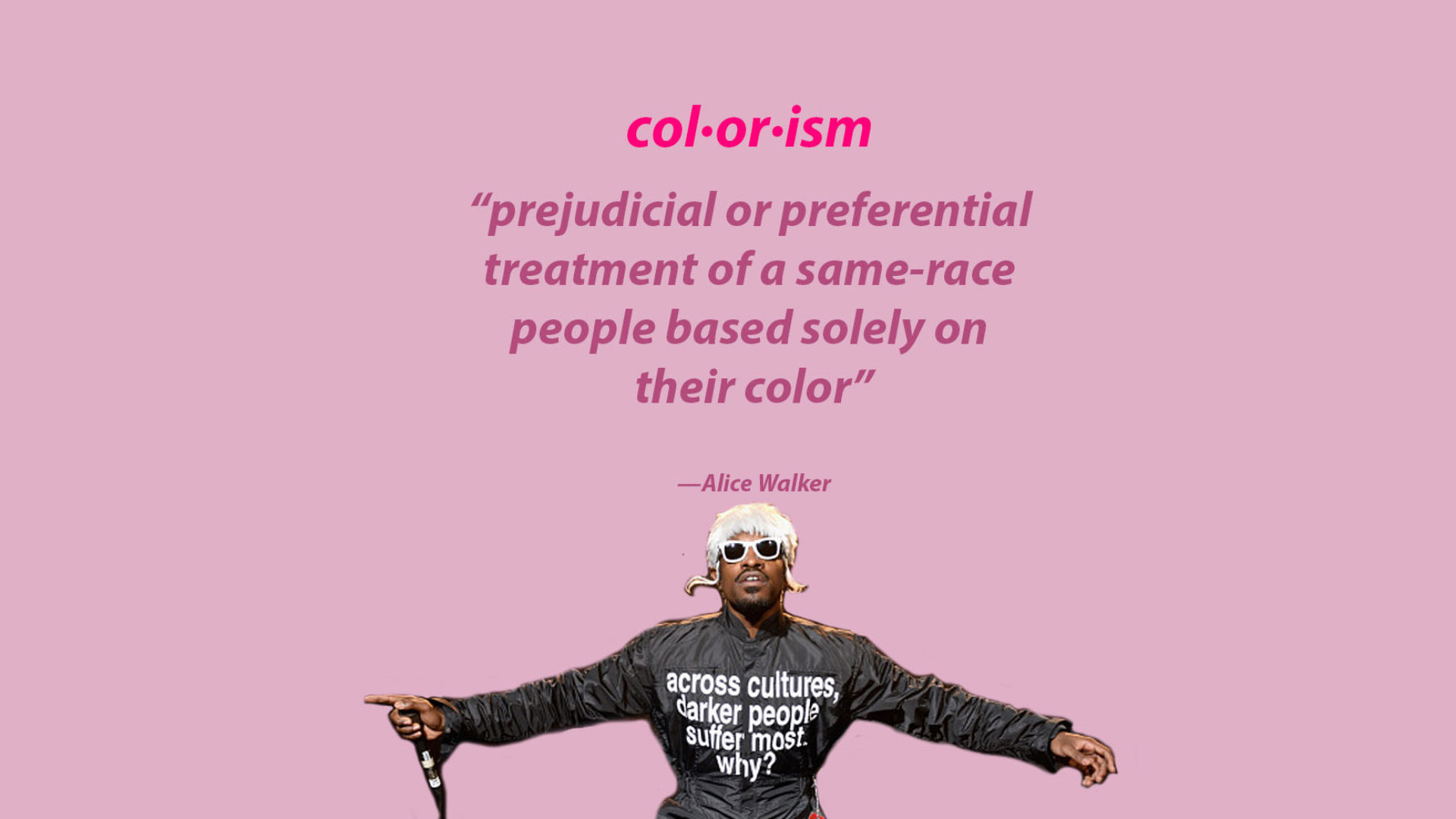
Colorism is a term that was coined by Alice Walker, author of The Color Purple, in 1983. In Walker’s collection of pieces, In Search of Our Mother’s Gardens, she described it as “prejudicial or preferential treatment of a same-race people based solely on their color.”
The disrespect of dark-skinned Black people goes back to the 1600s, when lighter slaves—usually the children of rapes committed against enslaved Black women—were given certain privileges, such as not having to work in the fields. Meanwhile, darkskinned slaves would have to toil in the sun and were belittled through various means, like not being taught to read. The obvious stratification not only allowed people to imbue their relationship with Black people with even more prejudice, but has greatly impacted the Black community as well. It’s caused some to think of their worth in relation to whiteness.
The effects of colorism are still largely felt in the music industry, the fashion industry, and in everyday life. One of the most jarring instances is connected to the recent wave of the natural hair movement, wherein darkskinned Black women with coiled 4c hair are pushed out, while lighter Black women with loose curls are able to grow large followings, and then align themselves with lucrative opportunities. This example of colorism has created space for texturism, hair-based prejudice, and the two often work in tandem to make darkskinned Black people feel like they are less than.
Colorism still abounds because certain people don’t take it seriously when its called out. Or, they believe that it goes both ways and that lighter Black people face a fraction of the disadvantages that darker people do. It’s still seen as an excuse, or a distraction from the fight against racism, and that’s if it’s taken seriously at all.
We have to be unafraid to speak on moments that have been completely soiled by colorism, because ignoring it, or chalking it up to history won’t change anything. 400 years is far too long to be made to feel inferior because of your skin tone.